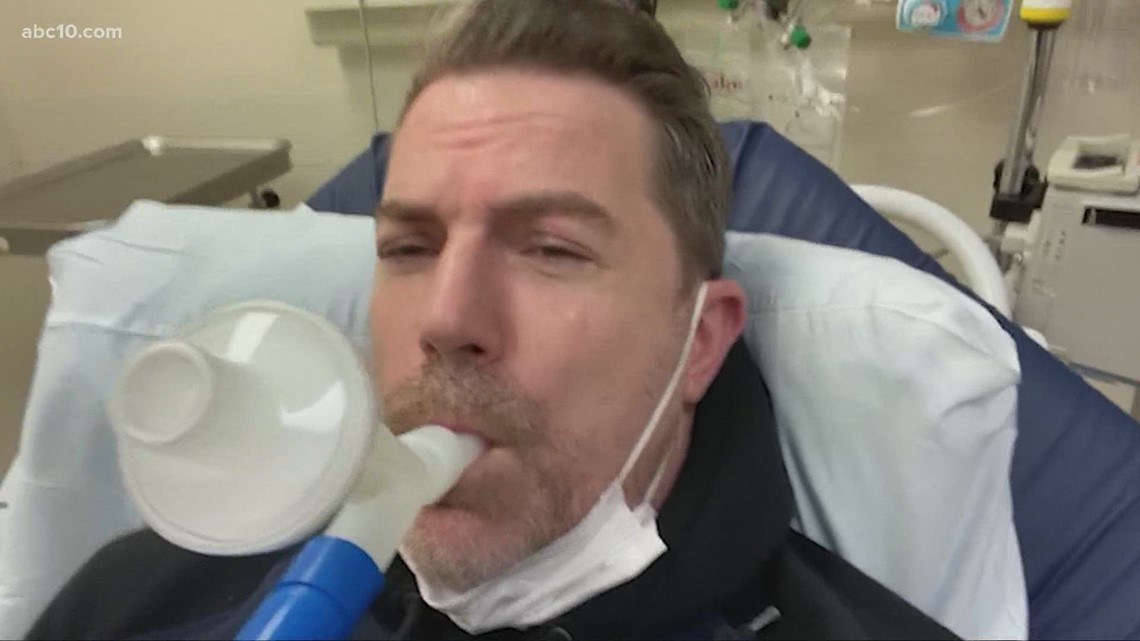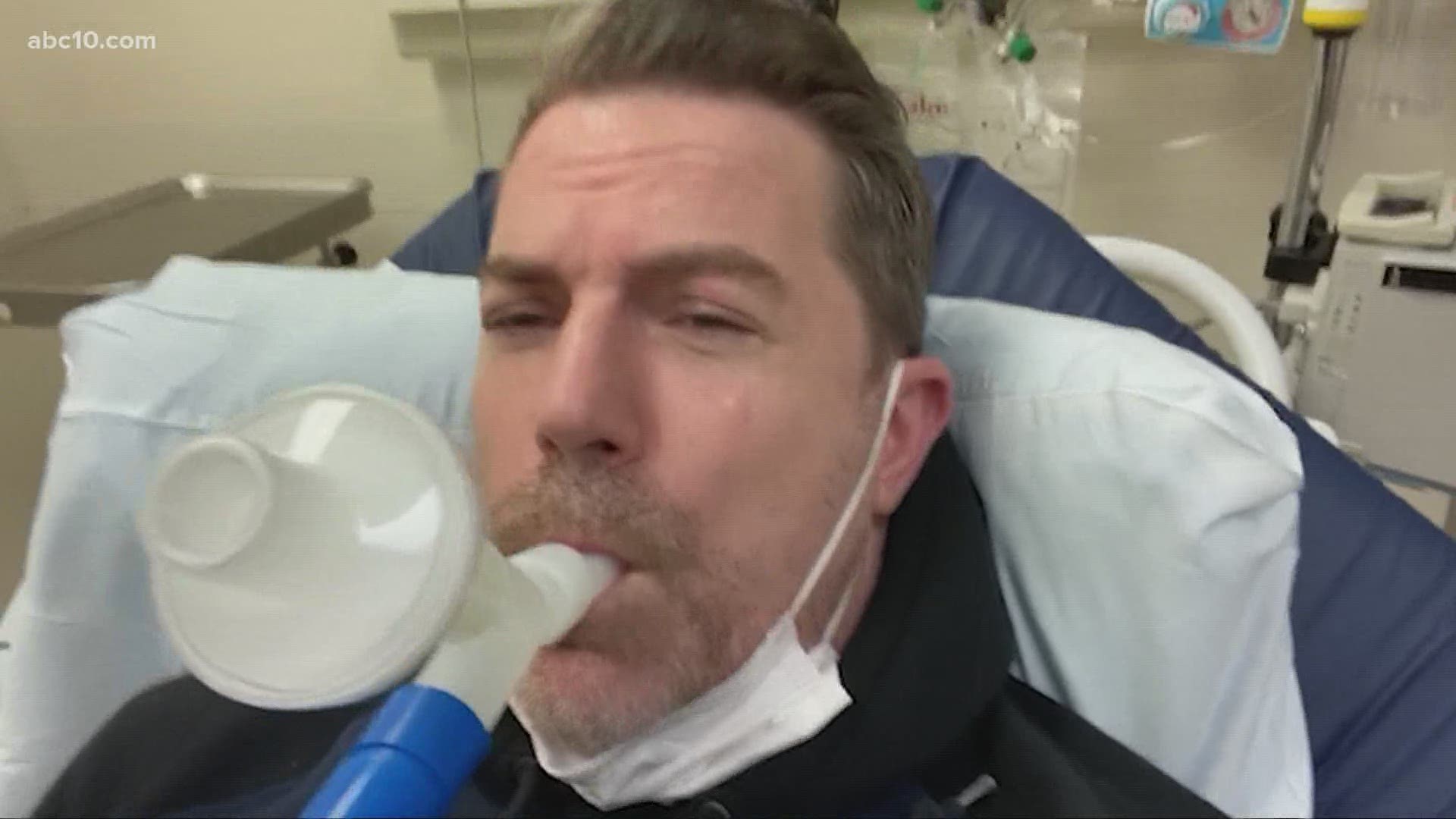SACRAMENTO, Calif — Billy Roberts survived COVID-19. It's somewhat of a surprise to Roberts, who after testing positive for the novel coronavirus last month, was worried because he has had asthma throughout his life.
The Atlanta native had no idea how long of a battle it would be.
"My symptoms really lasted like 27 days," Roberts explained. "It was a tough fight."
Roberts said he believes he contracted the virus while he was visiting Los Angeles for a concert. He got back home on March 1 but didn't start exhibiting symptoms until 11 days later.
"I was at a practice football game, flag football, and I just got really winded," Roberts recalled. "Then, the next day, I just got a really high fever. So I went to the doctor and I was having a really hard time breathing."
Roberts says he was given the last test the clinic had. It took five more days for the results to come back, but they showed what he many dread: He tested positive for COVID-19.
Roberts had to be hospitalized before his test results had even come back.
"I had just taken my dog out and I literally couldn’t get up the steps without — it felt like when you breathe out okay, but when you breath in, it felt like you were trying to pull up a 10 weight anchor," Roberts remembered. "And I'd get really dizzy and my fever was at 103. So I called my doctor and he said, 'Go to the hospital immediately.'"
Roberts said no one in his area was taking it seriously at the time. On March 12, the day that he began feeling symptoms, Georgia had its first coronavirus-related death — a 67-year-old with underlying health conditions. The entire state only had 21 confirmed cases and 19 presumptive cases of the virus, most of which were in the Atlanta area.
Fast-forward nearly a month later, and the state has 10,189 cases of the virus, and 369 deaths.


"I feel like the whole country, including my parents, my friends — everybody was in denial," Roberts said. "And it kind of swept the country very slowly. Even when I first went to the hospital, I was one of no patients. Even the nurses checking me in were not wearing the protective gear like they should. They weren't taking it seriously themselves."
Just as Roberts was feeling better about 10 days in, his situation suddenly took a turn for the worst.
He said it felt like his immune system failed, "and that’s when I just crashed."
Roberts needed to be hospitalized again. At one point he had to be put on a respirator.
"And I think that’s what the danger is," Roberts said. "People think they're getting better, and then Day 11, Day 12, some people crash, some people get over it."
He credits constant monitoring of his oxygen levels with getting him through the worst of times. Roberts had a pulse oximteter, which reads blood oxygen level using a finger sensor and can be purchased at drug stores.
Still, Roberts can’t help but worry about all the people who crossed paths with him before he tested positive.
"That's the thing, you're not exhibiting symptoms, so you're exposing a lot of people," Roberts said. "And I didn't know I had it till it was too late, and I was showing a fever and I was showing the signs."
Roberts wants to remind people to take every precaution and just assume they have COVID-19.
“If anyone gets a slight symptom, I would say because of the test not being out there, assume that you do have it and quarantine yourself," Roberts said. "Protect yourself. Don't go out, don't expose anyone else. I think we all have to assume we have it because this virus is different.
"You're giving it to other people when you have no symptoms. And then when you have symptoms, it's kind of too late to take care of yourself."
Follow the conversation on Facebook with Mike Duffy.

